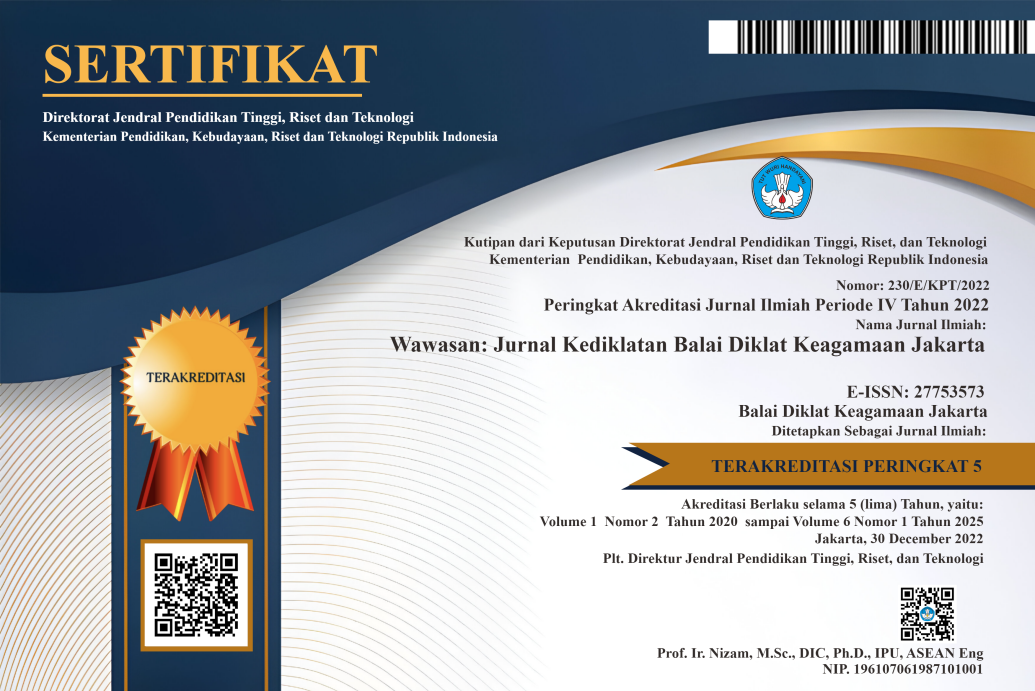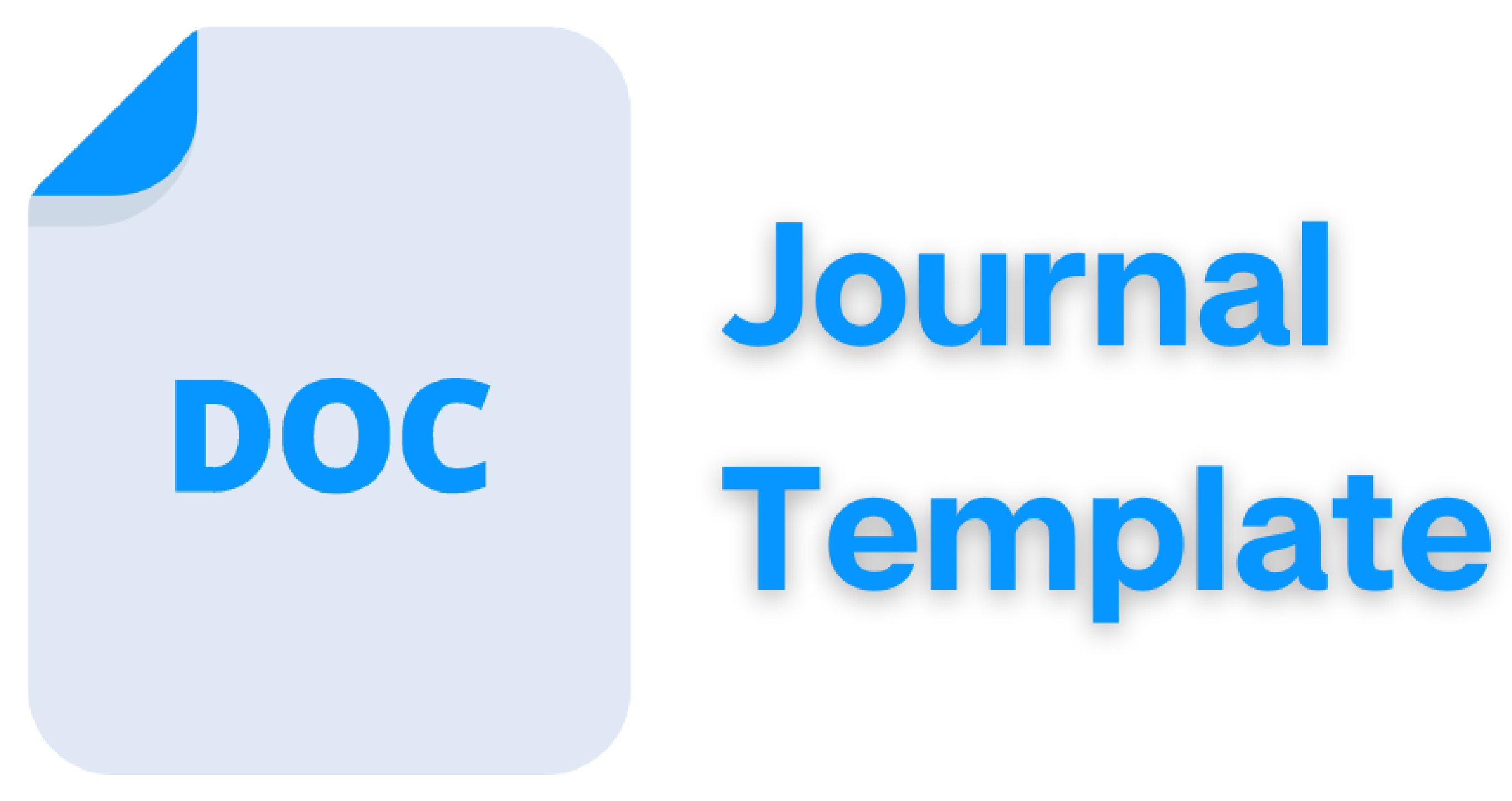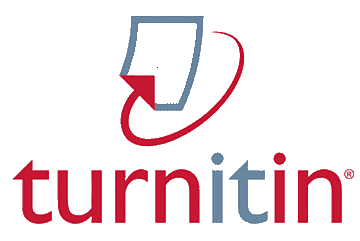URGENSI LITERASI DIGITAL BAGI WIDYAISWARA
DOI:
https://doi.org/10.53800/wawasan.v2i1.74Keywords:
digital literacy, digital technology, widyaiswara, learningAbstract
The digital era is marked by the shift of mechanical and analog technology to digital technology. The transfer of technology has led to the disruption of human culture. One of them is in the way of thinking and acting, especially for professionals. Today, a professional must have digital literacy competence, namely the ability to access, manage, understand, integrate, communicate, evaluate, and create information safely and precisely through digital technology. Widyaiswara is a related profession. Questions arise related to this, namely, "Why must digital literacy be mastered by widyaiswara, and for what?" A literature review has been conducted on ten journal articles published in Google Scholar to answer these questions. The results of the study concluded that digital literacy competence could answer the challenges of training in terms of the ability to update information, use gadgets and applications as sources of information, process and present information from training teaching materials, and finally, take an essential role in facing the pattern of distance training implementation based on e-learning application with its various sophistications. The results of the review are expected to provide insight and can be used as literature for further research.
Downloads
References
Anggraeni, H. (2019). Penguatan Blended Learning Berbasis Literasi Digital dalam Menghadapi Era Revolusi Industri 4.0. Al-Idarah: Jurnal Kependidikan Islam, 9(2): 190-203.
Gilster, P., & Glister, P. (1997). Digital literacy. New York: Wiley Computer Pub.
Giovanni, F., & Komariah, N. (2020). Hubungan Antara Literasi Digital Dengan Prestasi Belajar Siswa Sma Negeri 6 Kota Bogor. LIBRARIA: Jurnal Perpustakaan, 7(1): 147.
Gustiani, F. A. (2019). Pengaruh locus of control dan academic motivation terhadap adiksi media sosial pada Mahasiswa (Doctoral dissertation, UIN Sunan Gunung Djati Bandung).
Haliq, A., & Riyanti, A. (2019). Pembelajaran Mandiri melalui Literasi Digital.
Kemendikbud, 2016. Panduan Gerakan Literasi Sekolah.
Landa, Z. R., Sunaryo, T., & Tampubolon, H. (2021). Pengaruh Literasi Digital Guru dan Manajemen Pembelajaran Terhadap Minat Belajar Peserta Didik di SMA Pelita Rantepao. Jurnal Cendekia: Jurnal Pendidikan Matematika, 5(1): 718-734.
Mohammad Imam Farisi. 2010. Pengembangan Asesmen Diri Siswa (Student Self-Assessment) sebagai Model Penilaian dan Pengembangan Karakter. Artikel disampaikan pada Konferensi Ilmiah Nasional “Asesmen dan Pembangunan Karakter Bangsa” HEPI UNESA 2012.Konferensi Ilmiah Nasional “Asesmen dan Pembangunan Karakter Bangsa” HEPI UNESA 2012.
Nurjanah, E., Rusmana, A., & Yanto, A. (2017). Hubungan literasi digital dengan kualitas penggunaan e-resources. Lentera Pustaka: Jurnal Kajian Ilmu Perpustakaan, Informasi Dan Kearsipan, 3(2): 117-140.
Prihatini, M., & Muhid, A. (2021). Literasi Digital terhadap Perilaku Penggunaan Internet Berkonten Islam di Kalangan Remaja Muslim Kota. Journal An-Nafs: Kajian Penelitian Psikologi, 6(1): 23-40.
SIGA, A. B. U. A. (2021). Urgensi Literasi Digital bagi Perkembangan Generasi Milenial Doctoral dissertation, STFK Ledalero.
Sujana, A., & Rachmatin, D. (2019). Literasi digital abad 21 bagi mahasiswa PGSD: apa, mengapa, dan bagaimana. In Current Research in Education: Conference Series Journal, 1(1): 003.
Published
Issue
Section
License
Copyright (c) 2021 Wawasan: Jurnal Kediklatan Balai Diklat Keagamaan Jakarta

This work is licensed under a Creative Commons Attribution-NonCommercial-ShareAlike 4.0 International License.


















